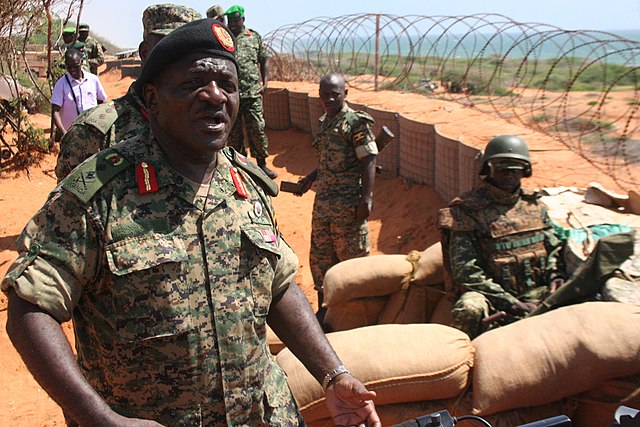The parliament of Uganda is the country's legislative body. Unicameral, the most significant of the Ugandan parliament's functions is to pass laws that will provide good governance in the country. The government ministers are bound to answer to the people's representatives on the floor of the house. Through the various parliamentary committees, parliament scrutinises government programmes, particularly as outlined in the State of the Nation address by the president. The fiscal issues of the government, such as taxation and loans need the sanction of the parliament, after appropriate debate. Parliament must confirm some Presidential nominations and may force a Minister to resign by passing a motion of censure.
Parliament of Uganda
The Presiding Officer of the Senedd greets delegates from the Ugandan Parliament; 2012
The tower that separates the east from the north wing buildings at the Uganda Parliament. this tower together with the parliament was built by the British colonial government in the late 1950s as a gift to Uganda just before it attained its independence.
Uganda People's Defence Force
The Uganda People's Defence Force (UPDF), previously known as the National Resistance Army, is the armed forces of Uganda. From 2007 to 2011, the International Institute for Strategic Studies estimated the UPDF had a total strength of 40,000–45,000, consisting of land forces and an air wing. Recruitment to the forces is done annually.
A Uganda Army OT-64 SKOT armoured personnel carrier during a military parade in Kampala in the late 1960s
Idi Amin (left), dressed in military fatigues, visits the Zairian dictator Mobutu in 1977.
Ugandan Chief of Defence Forces General Katumba Wamala with Ugandan soldiers as part of AMISOM in 2017
A Ugandan soldier in 2011







